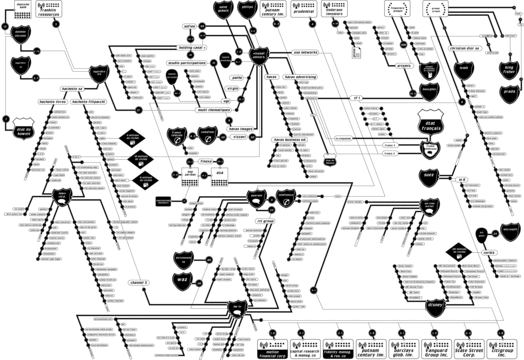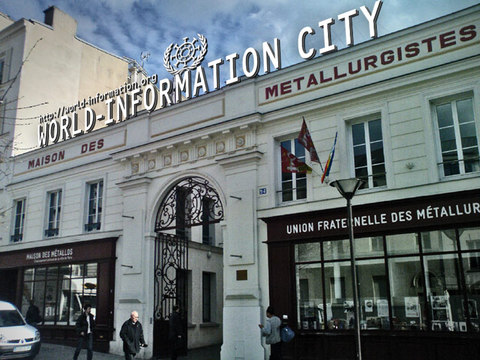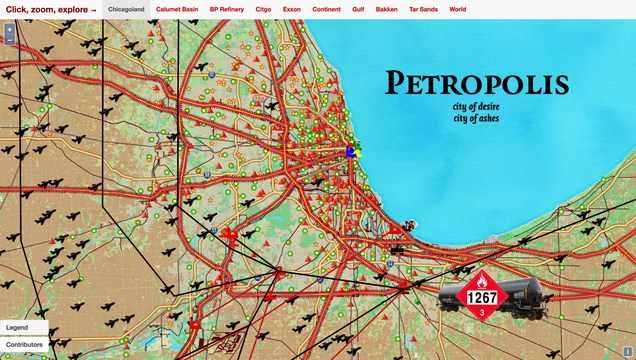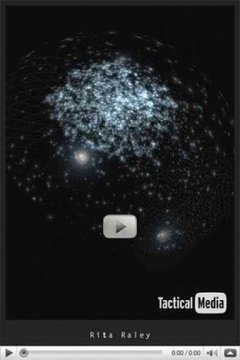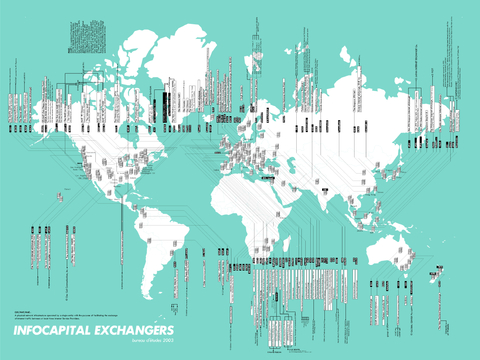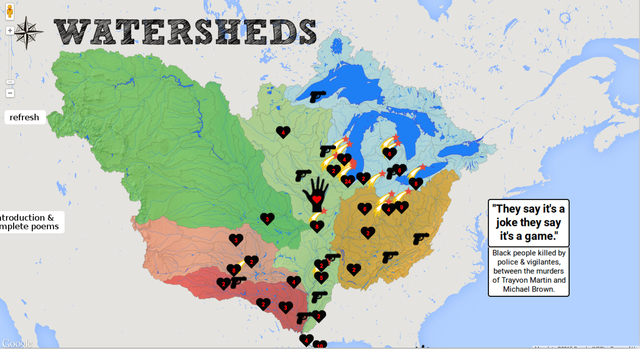Search results for 'cartography'
infocapital exchangers (2003)
Bureau d'Etudes (2003)
Governing by Networks (2003)
Bureau d'Etudes (2003)
World-Information Paris
Bureau d'Etudes
The Paris-based artists Léonore Bonaccini and Xavier Fourt form the artist-duo Bureau d´études.
ReadPetropolis
As power becomes traceable: raising the stakes on critique
Among the many troubling and bizarre features of contemporary politics, the following apparent paradox can be found: Informationalisation has brought along enormous increases in the traceability of the doings and dealings of the powerful. But the disruptive power of the exposure of these activities to the public, today seems especially low. After information technology, the going about of those in power and their abuses, are increasingly documented, and the resulting records are increasingly susceptible to leakage to the public. Email is an obvious example. In the run-up to the last Iraq war, a message by an official of the National Security Agency (NSA), which requested ? aggressive surveillance ? of UN Security Council Members Angola, Cameroon, Chile, Bulgaria and Guinea, made its way to the newspapers.
Infocapital Exchangers
Next 5 minutes 4 reader
The complete reader, including design, of the Next 5 Minutes 4 international festival of tactical media, Amsterdam, September 11 - 14, 2003.
Watersheds Map
The Watershed in Your Head - Mapping Anthropocene River Basins
Translating the abstraction—and banalities—of the Anthropocene into readable cartography has resulted in many past attempts that often ended up reproducing those same qualities. But, as Brian Holmes asserts in this essay, we seem to have found ourselves in a moment where collaboration, engagement, and new forms of knowledge exchange are breaking that deadlock. Tracing his own involvement with artistic practices that both engage with and attempt to represent a “political ecology,” Holmes explains how the evolving, collaborative cartographic practice that brought the "Mississippi. An Anthropocene River map" into being simultaneously reveals and interrogates the power structures of Anthropocence society.
ReadWorld-Information Paris
World-Information.Org is an trans-national cultural intelligence provider, a collaborative effort of artists, scientists and technicians. It is a practical example for a technical and contextual environment for cultural production and an independent platform of critical media intelligence.
Cartography of Excess
Utopian ideas - like "Spaceship Earth" - are round, multidimensional, interrelated: their archetypal map is the Milky Way, the infinite constellations. But rational thinking is instrumental, linear, it distorts: and that's exactly the problem with the Mercator map, the most common world projection. Buckminster Fuller, inventor of the geodesic dome, created a "Dymaxion map" to undo those distortions. First the earth becomes a geometric figure, an isocahedron: its 20 triangles are then disjointed and laid flat, so the land masses radiate from a nexus in the north, without splitting continents or enlarging the polar regions.
At Frontiers
Frequently at frontiers we are asked, "Anything to declare?"
The wisest thing to do when faced with the scrutiny of a border
official is to say that you have "nothing to declare", and quickly move
on. Crossing borders usually entails an effort not to say too much, or
at least to get by with saying very little. A degree of reticence is
the mark of the wise and experienced traveller.
The Network of Waves
Public Agency in Hybrid Space
Lead-essay for the theme issue "Hybrid Space" of OPEN, Journal for Art and the Public Domain, #11, (Amsterdam / Rotterdam, 2006).
Tactical Media as Virtuosic Performance
With kind permission of the author and publisher we have included the introduction of Rita Raley's book Tactical Media - 'Tactical Media as Virtuosic Performance' in the TMF resource as a pdf document. Raley's book appeared as part of the series Electronic Mediations with the University of Minnesota Press in 2009.
The Transborder Immigrant Tool: Violence, Solidarity and Hope in Post-NAFTA Circuits of Bodies Electr(on)/ic
This polyvocal, collectively authored paper describes the Transborder Immigrant Tool, a border disturbance art project developed by the Electronic Disturbance Theater. The paper outlines the motivations behind the tool and elaborates a notion of Science of the Oppressed as a methodology for developing locative media projects in solidarity with social movements. A shift is identified from Tactical Media to Tactical Biopolitics in contemporary media art. Walkingtools.net is also introduced as a platform for sharing technical information about locative media projects in order to create an ecology of projects. Poetic sustenance, part of the Transborder Immigrant Tool's functioning, is discussed in a context of Inter-American Transcendentalism.
ReadPolitical Ecology Begins When We Say "Black Lives Matter"
"They say it's a joke they say it's a game." The slogan was launched on the Chicago streets by the group We Charge Genocide, in the middle of a demo demanding reparations for victims of police torture. The folks on the street chanted those words, we hurled them out of our mouths in staccato bursts, while looking round at the passers-by who pretended not to notice. What the chant means is either enigmatic, or it's painfully obvious. There is a kind of disdain that minimizes a death or a beating or a torture or a life sentence for black people in the name of lawfulness, efficiency, morality and humanist ideals. That kind of disdain has made democracy impossible in the US - and other places too.
ReadDawn of the Organised Networks
At first glance the concept of "organised networks" appears oxymoronic. In technical terms, all networks are organised. There are founders, administrators, moderators and active members who all take up roles. Think also back to the early work on cybernetics and the "second order" cybernetics of Bateson and others. Networks consist of mobile relations whose arrangement at any particular time is shaped by the "constitutive outside" of feedback or noise.[1] The order of networks is made up of a continuum of relations governed by interests, passions, affects and pragmatic necessities of different actors. The network of relations is never static, but this is not to be mistaken for some kind of perpetual fluidity. Ephemerality is not a condition to celebrate for those wishing to function as political agents.
Read
